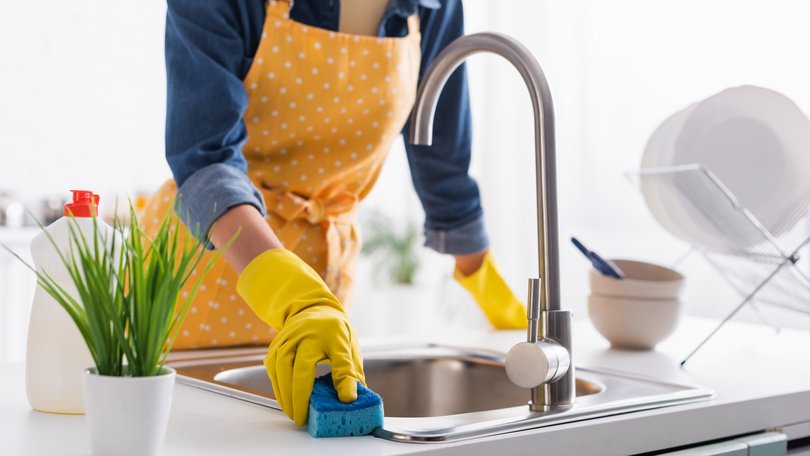WASHINGTON POST: Four ways to make your home germier and why it will help keep you healthy
The world around us, including our homes, is full of microorganisms such as bacteria, viruses and fungi. Here are four ways to make your home ‘germier’ - in order to make it healthier.

The world around us, including our homes, is full of microorganisms such as bacteria, viruses and fungi.
Some bacteria and viruses are bad for us, but the vast majority of microbes are harmless or actually beneficial, said Jack Gilbert, a professor at the University of California.
The microorganisms in our homes, where we spend a large amount of time, can play an important role in our health, Dr Gilbert said.
Sign up to The Nightly's newsletters.
Get the first look at the digital newspaper, curated daily stories and breaking headlines delivered to your inbox.
By continuing you agree to our Terms and Privacy Policy.Research suggests that being exposed to a greater diversity of microbes results in a better functioning immune system and lower rates of asthma or allergies.
We still don’t understand much about the microbiome in homes, Dr Gilbert said, but there is one emerging trend: Urbanisation appears to be associated with a loss of microbiome diversity in our environment and our bodies, which has probably contributed to a rise in disease, he said.
But there are a few easy ways to support a more diverse microbiome in your home.
Open your windows
If you live in an area with good air quality, opening the windows can help diversify your home’s microbiome by allowing in more microorganisms, Dr Gilbert said.
This is especially true if your home is within roughly 500m of diverse plants, he added.
Plants and soil release microorganisms, and exposure to diverse microorganisms can help train the immune system to better regulate itself, Dr Gilbert said.
Without this type of exposure, the immune system can overreact to good allergens and organisms, which could lead to autoimmune conditions or allergies, he explained.
“What we’re exposed to in the world can shape how our body reacts,” Dr Gilbert said.
Graham Rook, emeritus professor of medical microbiology at University College London, suggested that some microbes in the natural world are like “old friends” that evolved alongside us and benefit our health by strengthening our immune system’s ability to regulate itself and avoid harmful overreactions.
However, if you have allergies to spring pollen, allergists recommend keeping your windows closed to avoid exacerbating your symptoms.

Get some plants
Studies suggest that living in urban settings can reduce microbiome diversity in our homes and hinder the development of a varied microbiome in our bodies.
“In urban areas, there is a lot of asphalt or concrete and we don’t have as much connection to the soil or plants, so we don’t get as much microbial exposure,” said Juulia Manninen, from the University of Helsinki.
But interacting with plants increases exposure to beneficial microbes, which are often limited in indoor and urban environments, she said.
One Finland study found that people who worked in offices with vegetated “green walls” (vertical structures with plants growing on them) had increased levels of anti-inflammatory proteins in their blood than workers who did not get this intervention.
Similarly, another study found that adults living in urban areas who did indoor gardening using microbially diverse soil had increased levels of anti-inflammatory proteins in their blood after one month compared with those who gardened using soil with lower microbial diversity.
Indoor gardening — growing, repotting, or even harvesting herbs or vegetables indoors — is one way to increase our interaction with plants, but simply being exposed to a variety of potted plants in the home would still be beneficial, Dr Gilbert said.
Strategic cleaning
When cleaning your home, don’t overuse harsh chemical disinfectants because they could kill too many beneficial microorganisms, said Erica M Hartmann, an associate professor at Northwestern University.
Focus on only disinfecting areas where there may be harmful microorganisms, such as the kitchen countertop, where bacteria such as E. coli could spread from handling raw meat, or the bathroom, where potentially harmful moulds could grow, she said.
When using chemical disinfectants, wear a mask and open a window to avoid breathing in chemicals.
To remove dust or dirt from floors and shelves, skip disinfectants and use a damp cloth instead, Ms Hartman said.

Get a pet
Exposure to animals in or around the home is associated with a reduced risk for asthma and allergies, as well as some inflammatory diseases.
Dogs, in particular, have been shown to alter and diversify the microbiome inside a home.
Professor Rook and Dr Gilbert attributed this to dogs tracking microorganisms into the house.
“Allow your dogs to come into the house, even if they’re a little dirty,” Professor Rook suggested.

If all else fails, visit nature regularly
If you live in an area with air pollution, opening windows could do more harm than good, Dr Gilbert said.
Try to get outdoors as much as possible to increase your exposure to more diverse microorganisms.
“Even spending half an hour a week in a city park interacting with grass and trees will have health benefits,” Dr Gilbert said.
(c) 2025, The Washington Post
Originally published as 4 ways to make your house germier – in a good way
